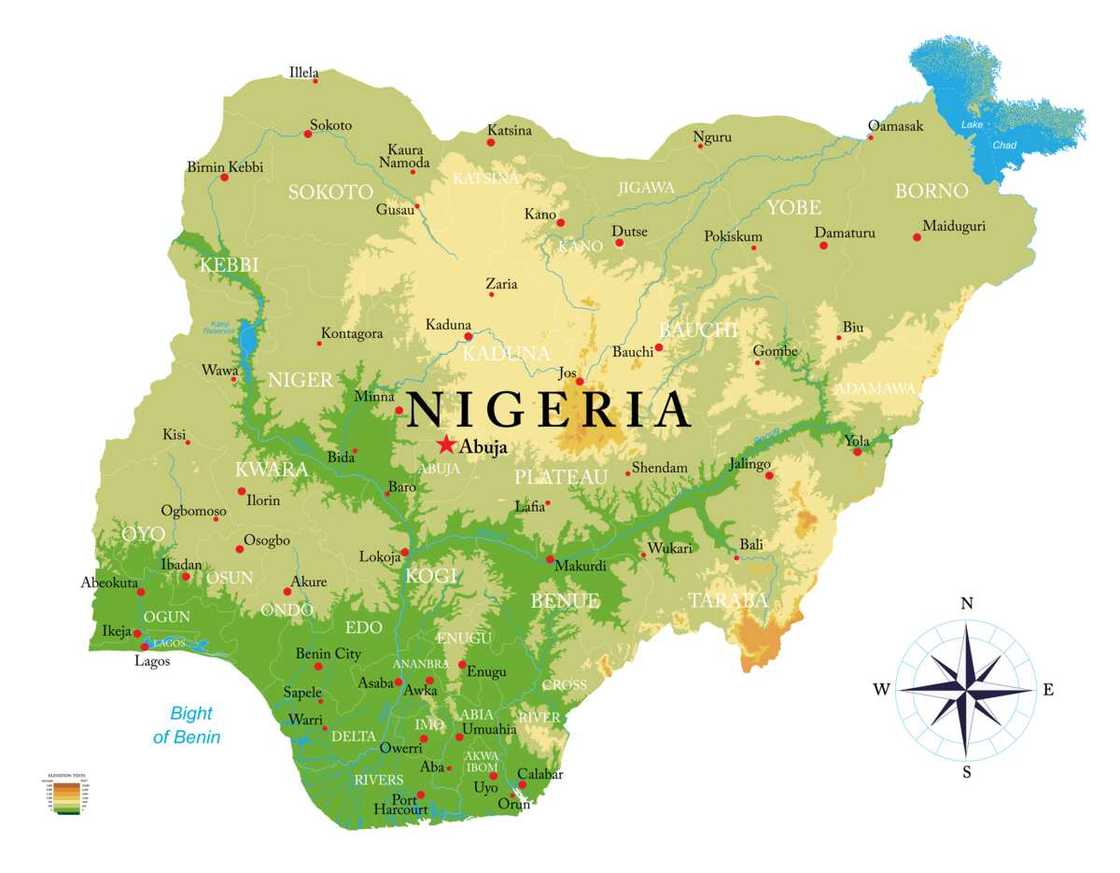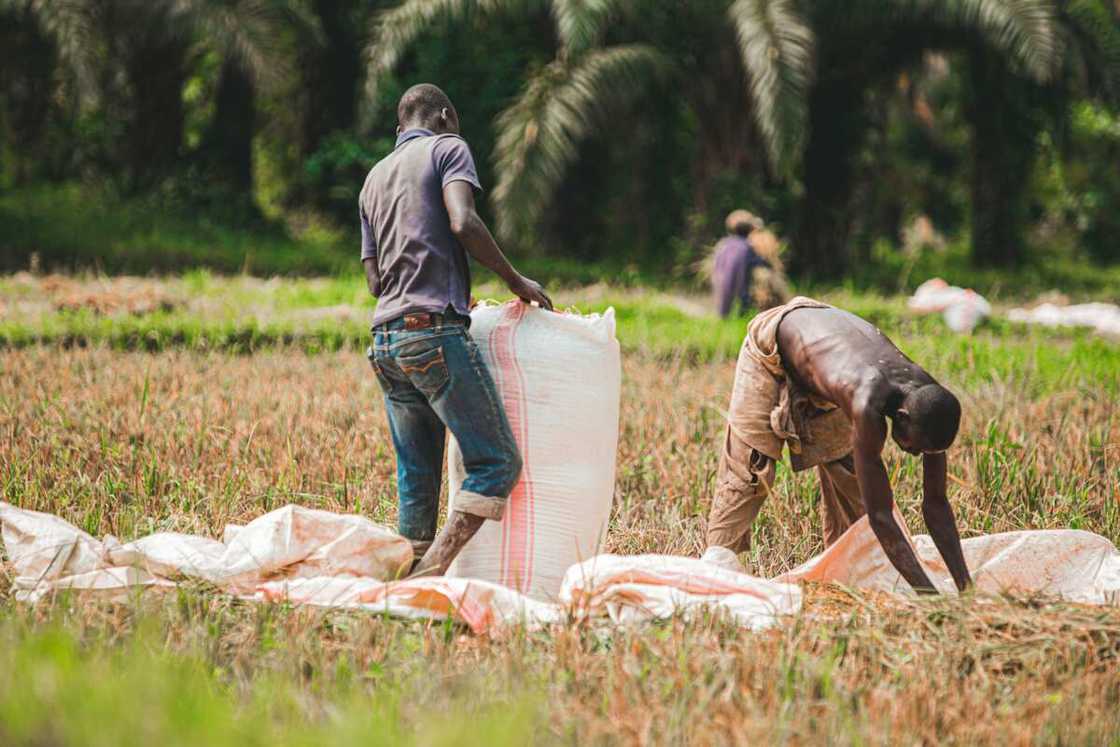History of Ogun State and other interesting facts you probably didn’t know
The Federal Republic of Nigeria has 36 states and one federal capital territory. Ogun State is one of the states, and it is located in the southwestern part of the country. It has existed for close to five decades now. The history of Ogun State is pretty brief and interesting.

Source: UGC
Each Nigerian state has some history. Some states are newer than others because some were demarcated out of older ones to make administration easier. Below is a look at the history of Ogun State, which is best known for Ofada rice production.
History of Ogun State
Ogun State was established on 3rd February 1976, making it 47 years old as of 2023. It is commonly known as The Gateway State.
The incumbent governor of Ogun State is Dapo Abiodun. He assumed office in 2019, and his deputy is Noimot Salako-Oyedele.
The history of Ogun State is short but interesting. Here is a look at the state's history and more facts about it.
Brief history of Ogun State
Ogun was created on 3rd February 1976 during General Murtala Mohammed's tenure. The state is located in Southwestern Nigeria, and Abeokuta is its capital.
It occupies a total area of 16,980.55 square kilometres and is the 16th largest state in terms of population. The state borders Lagos State to the south and Oyo and Osun States to the north. It borders Ondo State to the east and the Republic of Benin to the west.
Ogun was carved out of the former Abeokuta and Ijebu provinces of the former Western state. The Western state was carved out of the former Western region in 1967.
Shodeke/ Sodeke is an important character in the history of Ifo Ogun State. Ifo is a local government in Ogun State.
Shodeke/ Sodeke was a hunter and leader of the Egba refugees. He fled from the disintegrating Oyo Empire around 1830 alongside other refugees.

Read also
“Too cheap": CBN names BDC operator selling dollars below N700/$, begins manhunt for others
He founded a principality at Abeokuta, which is the state's capital today. Most inhabitants of Ogun are from the Egba and Egbado subgroups of the Yoruba community.
There are six main ethnic groups in this territory. These groups are Awori, Egba, Egbado, Egun, Ijebu, and Remo. Most of them speak Yoruba with an added regional flare.
Did you know the state is named after the Ogun River? The river flows through it from the state's northern part to the southern before entering Lagos State.

Source: Getty Images
Local administrative areas
The local administrative areas in the state are listed below.
- Abeokuta North
- Ijebu East
- Abeokuta South
- Ijebu North
- Ado-Odo/Ota
- Ijebu North East
- Yewa North
- Yewa South
- Ijebu Ode
- Ewekoro
- Ifo
- Ikenne
- Imeko Afon
- Ipokia
- Obafemi-Owode
- Odeda
- Ogun Waterside
- Odogbolu
- Remo North
- Shagamu
Economic mainstay
Agriculture is the primary economic activity in this state. Ofada rice is the main crop grown in this region. Other crops farmed are yams, maize, plantains, cassava, cocoa, kola nuts, rubber, palm oil, and bananas.
Besides agriculture, the state has multiple Aro granite quarries. Building materials are sourced from these quarries.
The region's mineral resources are clay, chalk, limestone, and phosphates. It is home to multiple industries that produce plastics, carpets, tires, paint, rubber, and tiles.
The capital, Abeokuta, is a centre of trade because it is a terminus of the roads and railways coming from Lagos and other parts of Nigeria.

Source: UGC
Other facts about Ogun State
- The key tourist attractions are Olumo Rock, the Centenary Hall, and the Ake.
- There are 16 universities in Ogun. One is run by the federal government, three by the state government, and 12 are privately owned. Ogun has the highest number of universities.
- Ogun River and Yewa River are the two main rivers in the state.
- The state is divided into three senatorial districts, i.e., Ogun Central, Ogun East and Ogun West.
- The Federal Medical Centre and the Olabisi Onabanjo University Teaching Hospital are the two main hospitals in Ogun.
- Notable people from this region include Abraham Adesanya, Salawa Abeni, Sara Forbes Bonetta, Tunji Olurin, Yemi Osinbajo, Tunde Bakare, and Wole Soyinka.
- Islam is the predominant religion in Ogun.
- The people of Ogun State are known for their batik called Adire.
- The main festivals and celebrations marked in Ogun are Ita Oba Day (the day after Eid El-Kabir), Ojude Oba Festival (three days after Eid El-Kabir), the Ake Festival, and the Yewa Festival.
What is the history of Ogun State?
The history of Ogun can be traced to 1830, when Shodeke/ Sodeke founded a principality at Abeokuta after the fall of the Oyo Empire.
Where did Ogun State start from?
Ogun State started in Abeokuta after Shodeke/ Sodeke founded a principality there after fleeing from the collapsing Oyo Empire.
What is special about Ogun State?
Ogun State is special for being the almost exclusive site of Ofada rice production. The rice was actually named after Ofada town, where it was successfully cultivated.
The history of Ogun State is quite brief because it was simply carved out of former provinces. The state is known for its production of Ofada rice.
Legit.ng recently published information about the state creation process in Nigeria and the creators of various states. Nigerian states were created at varying times in Nigeria's history and by various regimes.
Each is a semi-autonomous political unit that shares powers with the country's federal government, as stated in the Nigerian constitution.
Source: Legit.ng

Cyprine Apindi (Lifestyle writer) Cyprine Apindi is a content creator and educator with over six years of experience. She holds a Diploma in Mass Communication and a Bachelor’s degree in Nutrition and Dietetics from Kenyatta University. Cyprine joined Briefly.co.za in mid-2021, covering multiple topics, including finance, entertainment, sports, and lifestyle. In 2023, she finished the AFP course on Digital Investigation Techniques. She received the 2023 Writer of the Year Award. In 2024, she completed the Google News Initiative course. Email: cyprineapindi@gmail.com

Adrianna Simwa (Lifestyle writer) Adrianna Simwa is a content writer at Legit.ng where she has worked since mid-2022. She has written for many periodicals on a variety of subjects, including news, celebrities, and lifestyle, for more than three years. She has worked for The Hoth, The Standard Group and Triple P Media. Adrianna graduated from Nairobi University with a Bachelor of Fine Arts (BFA) in 2020. In 2023, Simwa finished the AFP course on Digital Investigation Techniques. You can reach her through her email: adriannasimwa@gmail.com



